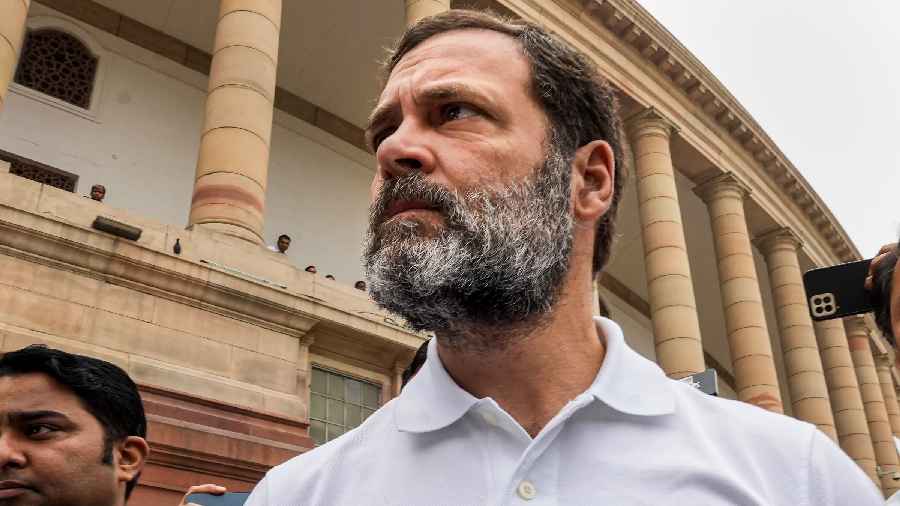Rahul Gandhi can still get his Lok Sabha membership restored if a court stays his conviction, a legal expert said citing past Supreme Court judgments.
“It was clarified in Lok Prahari vs Election Commission of India (2018) that the disqualification will stop operating from the date of the stay of conviction by the appellate court,” Sidharth Luthra, eminent criminal lawyer and former additional solicitor-general of India, told The Telegraph on Friday.
However, Rahul may need to move fast and file his appeal. For, if his conviction is stayed only after the by-election to fill the seat vacated by his disqualification has been held, there would be no automatic restoration of his membership and he would need to contest another election or by-election, Luthra clarified.
“Now that the Speaker has issued the notification, (Rahul) ought to approach the sessions court and file an appeal and seek a stay on his conviction,” he said.
“If it’s granted, he can reach out to the Speaker to act in terms of the Supreme Court decisions. If, however, the by-election is held before the stay of conviction is granted, the only remedy will be to contest in 2024 or to contest any other by-election.”
Luthra expressed surprise at Rahul being handed the maximum permissible sentence of two years for defamation.
Other legal experts too have said that the usual punishment for defamation is a token jail term of a day or a month.
However, a two-year term is the minimum sentence for which a lawmaker can be disqualified from membership of their House.
“It’s open to his (Rahul’s) lawyers to challenge the conviction and sentence on law and the evidence, as also that the maximum sentence of two years is very rare,” Luthra said.
Originally, Section 8(4) of the Representation of the People Act suspended the operationof a convicted lawmaker’s disqualification for three months so they could appeal their conviction.
However, the 2013 Lily Thomas judgment quashed this three-month breather, which allowed Speaker Om Birla to disqualify Rahul as a Lok Sabha member a day after his conviction by a Surat court. But although the Lily Thomas judgment took away the three-month leeway for moving an appeal,the Lok Prahari judgment clarified that it did not mean that an eventual stay on conviction would not provide retrospective relief from disqualification.
In the Lok Prahari case, an NGO had sought a declaration that, even if an appellate court stayed a lawmaker’s conviction, it would not remove the disqualification and revive their House membership with retrospective effect.
But a bench made up of then Chief Justice of India Dipak Misra, Justice A.M. Khanwilkar (both now retired) and Justice D.Y. Chandrachud (the present CJI) rejected the plea.
Justice Chandrachud, who authored the 2018 judgment, cited the past judgments to observe: “The decisions in Ravikant Patil and Lily Thomas conclude the issue. Since the decision in Rama Narang, it has been well-settled that the appellate court has the power, in an appropriate case, to stay the conviction under Section 389 (CrPC) besides suspending the sentence.
“As the decision in Lily Thomas has clarified, a stay of the conviction would relieve the individual from suffering the consequence inter alia of a disqualification relatable to the provisions of sub-sections 1, 2 and 3 of Section 8.”
Luthra had served as additional solicitor-general with the UPA-II government, and recently turned down the NDA government’s offer of the same post. He has appeared for several BJP leaders in various matters.
He represented the late Union minister Arun Jaitley in a defamation case he had moved against Delhi chief minister Arvind Kejriwal.










